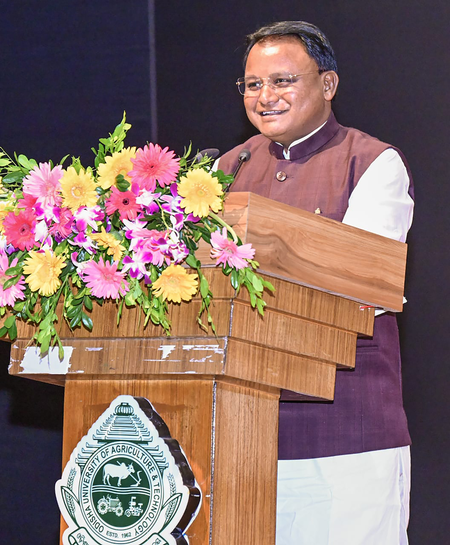
Bhubaneswar, Aug 4 (IANS) The Odisha government will develop 835 model primary schools under the first phase of its flagship Godabarish Mishra Adarsha Prathamik Vidyalaya scheme.
These high-quality primary schools developed under the flagship programme will function as feeder schools for the high schools across the state.
The government targets to spend Rs 7 crore per school. Primary schools with more than 100 students, classes being held from pre-primary (Shishu Vatika) to Class 8 and possessing more than two acres of land will be developed as model schools under the Godabarish Mishra Adarsha Prathamik Vidyalaya scheme.
During a review meeting held here on the implementation of the scheme, Chief Minister Mohan Charan Majhi emphasised developing one model school in each gram panchayat headquarters, keeping in view its geographical location.
He also stressed on providing national-level quality education in the socio-economic context and ensure transport facilities for the students.
CM Majhi instructed the concerned authorities during the meeting to provide free transportation facilities to students in remote and inaccessible areas to facilitate their commute to school.
He also directed the authorities to select schools with sufficient land and develop those primary schools in a way that allows for future upgradation to high schools.
The Chief Minister directed departmental secretaries and officials to ensure the improvement in results through the adoption of technology and follow best practices in teacher recruitment process.
The Chief Minister also laid emphasis on strengthening infrastructure, adopting modern teaching methods, encouraging the involvement of parents, alumni, and local stakeholders.
He also stressed on strengthening foundational literacy and numeracy to achieve basic educational competencies by class 3, in alignment with the National Education Policy 2020 (NEP 2020).
In the meeting, discussions held over government’s aim to promote diverse forms of education in these schools, including STEM-based learning (Science, Technology, Engineering, and Mathematics), with a strong emphasis on science, technology, engineering, and mathematics education, as well as vocational skills and experiential learning.
The initiative seeks to support the holistic development of students by encouraging creativity, critical thinking, and life skills.
–IANS
gyan/pgh



